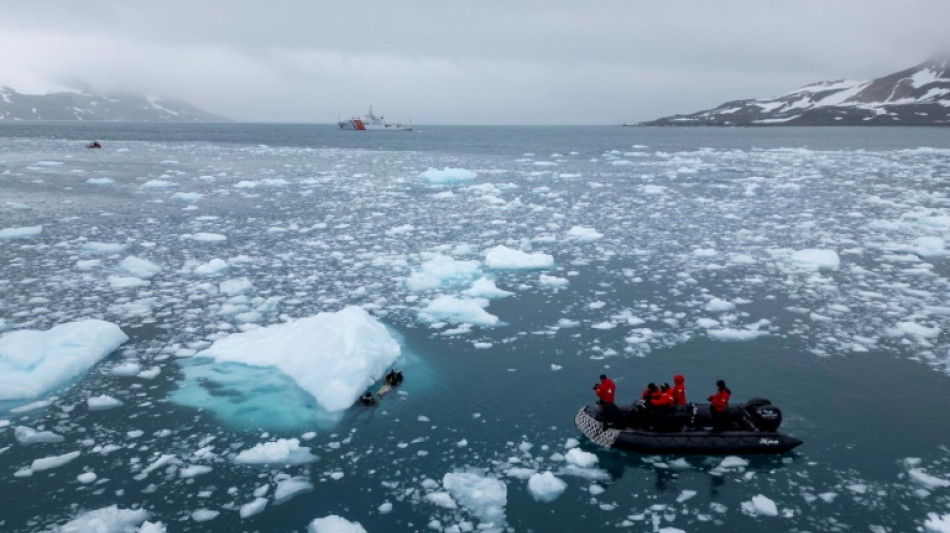
-
 Assange files complaint against Nobel Foundation over Machado win
Assange files complaint against Nobel Foundation over Machado win
-
Private donors pledge $1 bn for CERN particle accelerator
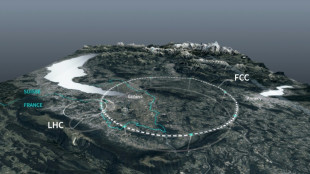
-
 Russian court orders Austrian bank Raiffeisen to pay compensation
Russian court orders Austrian bank Raiffeisen to pay compensation
-
US, Qatar, Turkey, Egypt to hold Gaza talks in Miami

-
 Lula open to mediate between US, Venezuela to 'avoid armed conflict'
Lula open to mediate between US, Venezuela to 'avoid armed conflict'
-
Brussels farmer protest turns ugly as EU-Mercosur deal teeters

-
 US imposes sanctions on two more ICC judges for Israel probe
US imposes sanctions on two more ICC judges for Israel probe
-
US accuses S. Africa of harassing US officials working with Afrikaners

-
 ECB holds rates as Lagarde stresses heightened uncertainty
ECB holds rates as Lagarde stresses heightened uncertainty
-
Trump Media announces merger with fusion power company

-
 Stocks rise as US inflation cools, tech stocks bounce
Stocks rise as US inflation cools, tech stocks bounce
-
Zelensky presses EU to tap Russian assets at crunch summit

-
 Pope replaces New York's Cardinal Dolan with pro-migrant bishop
Pope replaces New York's Cardinal Dolan with pro-migrant bishop
-
Odermatt takes foggy downhill for 50th World Cup win

-
 France exonerates women convicted over abortions before legalisation
France exonerates women convicted over abortions before legalisation
-
UK teachers to tackle misogyny in classroom

-
 Historic Afghan cinema torn down for a mall
Historic Afghan cinema torn down for a mall
-
US consumer inflation cools unexpectedly in November

-
 Danish 'ghetto' residents upbeat after EU court ruling
Danish 'ghetto' residents upbeat after EU court ruling
-
ECB holds rates but debate swirls over future

-
 Pope replaces New York's Cardinal Timothy Dolan with little-known bishop
Pope replaces New York's Cardinal Timothy Dolan with little-known bishop
-
Bank of England cuts interest rate after UK inflation slides

-
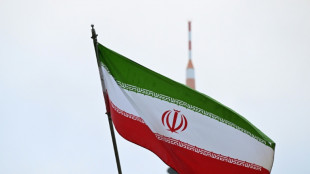 Have Iran's authorities given up on the mandatory hijab?
Have Iran's authorities given up on the mandatory hijab?
-
Spain to buy 100 military helicopters from Airbus
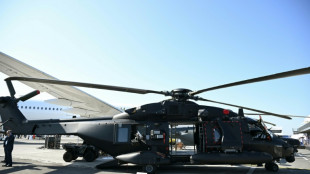
-
 US strike on alleged drug boat in Pacific kills four
US strike on alleged drug boat in Pacific kills four
-
Thailand strikes building in Cambodia's border casino hub

-
 Protests in Bangladesh as India cites security concerns
Protests in Bangladesh as India cites security concerns
-
European stocks rise before central bank decisions on rates
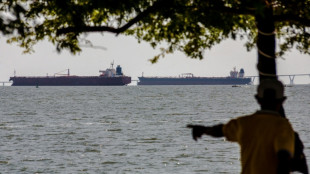
-
 Tractors clog Brussels in anger at EU-Mercosur trade deal
Tractors clog Brussels in anger at EU-Mercosur trade deal
-
Not enough evidence against Swedish PM murder suspect: prosecutor
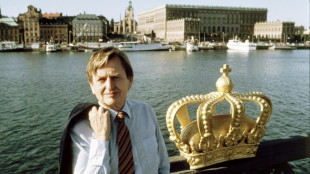
-
 Nepal's ousted PM Oli re-elected as party leader
Nepal's ousted PM Oli re-elected as party leader
-
British energy giant BP extends shakeup with new CEO pick

-
 Pulitzer-winning combat reporter Peter Arnett dies at 91
Pulitzer-winning combat reporter Peter Arnett dies at 91
-
EU kicks off crunch summit on Russian asset plan for Ukraine

-
 Lyon humbled to surpass childhood hero McGrath's wicket tally
Lyon humbled to surpass childhood hero McGrath's wicket tally
-
Sri Lanka plans $1.6 bn in cyclone recovery spending in 2026

-
 England vow to keep 'fighting and scrapping' as Ashes slip away
England vow to keep 'fighting and scrapping' as Ashes slip away
-
'Never enough': Conway leans on McKenzie wisdom in epic 300 stand

-
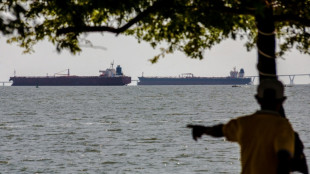 Most Asian markets track Wall St lower as AI fears mount
Most Asian markets track Wall St lower as AI fears mount
-
Cambodia says Thailand bombs casino hub on border
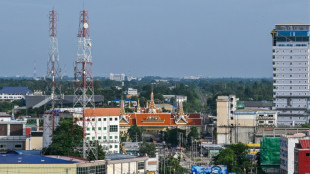
-
 Thai queen wins SEA Games gold in sailing
Thai queen wins SEA Games gold in sailing
-
England Ashes dreams on life-support as Australia rip through batting

-
 Masterful Conway, Latham in 323 opening stand as West Indies wilt
Masterful Conway, Latham in 323 opening stand as West Indies wilt
-
Danish 'ghetto' tenants hope for EU discrimination win

-
 Cricket Australia boss slams technology as Snicko confusion continues
Cricket Australia boss slams technology as Snicko confusion continues
-
Conway and Latham's 323-run opening stand batters hapless West Indies

-
 Alleged Bondi shooters holed up in hotel for most of Philippines visit
Alleged Bondi shooters holed up in hotel for most of Philippines visit
-
Japan govt sued over 'unconstitutional' climate inaction

-
 US approves $11 billion in arms sales to Taiwan: Taipei
US approves $11 billion in arms sales to Taiwan: Taipei
-
England battle to save Ashes as Australia rip through top-order


Studying the otherworldly sounds in Antarctic waters
In freezing Antarctic waters, amid bobbing chunks of floating ice, the hums, pitches and echoes of life in the deep are helping scientists understand the behavior and movements of marine mammals.
"There are species which make impressive sounds, literally like Star Wars, they sound like spaceships," said Colombian scientist Andrea Bonilla, who is carrying out research with underwater microphones off Antarctica's coast.
The biologist from Cornell University in New York submerges a hydrophone covered in titanium and attached to a buoy, into the frigid water. The device is like a camera trap in the wild, except it picks up aquatic sounds.
Her team, part of a Colombian scientific expedition to the Southern Ocean, also picks up devices they left a year prior for analysis.
The research also gives scientists data on how human activity and environmental pollution affect sea life in one of the best conserved parts of the planet.
Nearby, a colony of penguins waddle along a giant block of floating ice.
A humpback whale comes to the surface for some air during a stint in the region for the austral summer -- a time for feeding and building up energy before their massive trek to warmer climes around the equator in the breeding season.
- 'Sound is essential' -
Bonilla describes the first time she heard whale song underwater as having "changed her life."
Scientists have warned that rising ocean temperatures are impacting whales' body clock and migration cycles, as well as killing off krill, the tiny crustaceans they need to fatten up for annual journeys of thousands of kilometers.
Whale communication has also been found to be impacted by noise at sea from shipping and other activity, which can disorient them.
"In a marine environment sound is essential," said Bonilla, adding that any interruption can affect some species ability to hunt.
Weddell seals and leopard seals also emit high-pitched songs in different tones and often harmonious compositions.
During their expedition the scientists install three underwater microphones, two in the Bransfield Strait and one in the Drake Passage.
The team also follows a set of coordinates to find the buoy left by Bonilla a year ago. When they are within 300 meters (1,000 feet) of it, she can send remote signals to find its exact location.
Her delighted teammates pat her on the back as she successfully retrieves the hydrophone from 500 meters deep.
"I am so excited because it was the first time we did this manuever in these waters. It all went super well," said Bonilla.
The scientist will use spectrograms -- a visual representation of sound -- to extract information not only about the movement of marine mammals, but also geophysics.
The hydrophones also capture low frequencies that can pick up the sounds of earthquakes or melting ice.
The research has another goal, supporting a proposal pushed by Chile and Argentina since 2012 to convert the Antarctic Peninsula into a protected marine area.
T.Ward--AMWN


